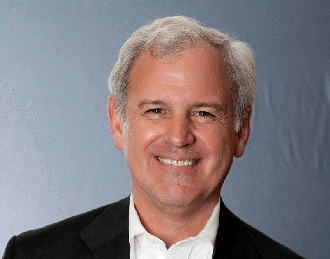By Brandon Moseley
Alabama Political Reporter
For many years, there have been two major factions in Alabama Republican politics, very loosely defined as “the establishment” and “the far right.” The two sides faced each other in open warfare for the first time during the 1998 Republican Party Primary, when the business community funded moderate Winton Blount’s primary challenge against conservative incumbent Governor Fob James. Blount attacked James as an ideologue, too extreme on the social issues and an embarrassment to the state. James dismissed Blount as a rich “country club Republican.” Both successfully defined their opponent in the minds of Alabama voters. James beat Blount; but never could put the party back together again.
After three straight Republican victories in Alabama Governor’s races, the people of Alabama elected Democratic Party moderate Don Seigelman in that fall general election over James in a landslide. The establishment blamed the far right and made Blount the Alabama Republican Party Chairman. In 2002, Congressman Bob Riley united both factions and unseated Seigelman. In 2003 the new governor foolishly blew that unity up when he made a deal with Montgomery Democrats, a legion of lobbyists, and AEA boss Paul Hubbert to propose an amendment to the Alabama Constitution which would have imposed draconian tax increases on the people of Alabama to fund massive government spending increases.
While most Republicans in the legislature, including House Minority Leader Mike Hubbard (who introduced Amendment One for the Governor) fell in line with Governor Riley, the grassroots conservatives that support Republicans because they are the party of low taxes and small government revolted. Former State Senator Bill Armistead, conservative talk radio. and even the Republican Party Chairman at the time, Marty Connors, opposed the unpopular amendment. Democrats were not able to deliver their voters en masse and Republican voters overwhelmingly rejected Gov. Riley’s amendment in the special election.
In the 2006 Republican Primary, movement conservatives backed former Alabama Supreme Court Chief Justice Roy Moore against Gov. Riley. Buoyed by growing support from Alabama’s business community and accusations that Moore was “too extreme” and Riley was able to hold off the Moore challenge.
In 2010, the far right vote was split between Moore and Governor James’ son, Tim, allowing dark horse Republican moderate state Representative Robert Bentley from Tuscaloosa to get in the Republican runoff with establishment candidate: former State Senator Bradley Byrne from Montrose. Angry conservatives then flocked to Bentley over Byrne who was being attacked as “too liberal for Alabama” in a negative attack ad campaign funded by the Alabama Education Association (AEA). Bentley, like Riley in 2006, easily defeated a weak Democratic Party opponent. The Alabama Republican Party then selected conservative Bill Armistead over ‘establishment’ state Representative Jay Love to head the party. Armistead would beat back another establishment supported challenge in 2013.
In 2012, Moore defeated Bentley appointee Chuck Malone and “establishment” favorite Charlie Graddock in the Republican Primary to retake the Chief Justice seat on the Alabama Supreme Court. In the same election, longtime Moore aide, Dean Young unsuccessfully challenged longtime Mobile Congressman Jo Bonner (R) who had the support of establishment Republicans.
When Bonner resigned in August, nine Republican candidates emerged. All nine candidates had conservative platforms and credentials. One, Quin Hillyer has written voluminously about conservative issues and actually worked for both Ronald Reagan and Newt Gingrich.
At the end of the day, the candidate in the field who was most recognized as “establishment” had the most votes: Bradley Byrne. The candidate who was most identified as “far right” Dean Young, had the second most votes.
The difference between “establishment” Republicans and “far right” Republicans in Alabama politics is very difficult too understand or explain. Both factions are for traditional marriage, gun rights, lower taxes, small government, a strong defense, supply side economics, and both court the Tea Party and the growing numbers of libertarian Republicans. Both sides oppose abortion, Obamacare, amnesty for illegal aliens, and the Alabama Education Association. The difference seems to be primarily about degree of support for those positions. The best example may be last night’s filibuster in the U.S. Senate. “Establishment” Republicans have voted 40 times to repeal Obamacare but “far right” or “movement conservatives” are willing to shut the government down and not raise the debt ceiling if they don’t get their way.
Both Byrne and Young will be among the most conservative Congressmen in the U.S. Congress if elected. Byrne supporters will say however that he will be better at actually getting things done for the district. Supporters of Young will likely counter that Byrne will be too eager to compromise with Democrats and Republican moderates. Byrne’s conservative credentials have been questioned because he was first elected as a Democrat during the 1990s and because he voted for Amendment One when in the State Senate in 2003.
Byrne is probably far more likely to attract corporate dollars, moderate voters, and prominent endorsements for the runoff than will the outspoken Young, though Young’s ability to identify his voters and get them to come out to the polls can not be underestimated after Tuesday’s performance, which more than doubled his poll numbers. Byrne is likely the more electable of the two, but it is doubtful whether Democrat Burton LeFlore can beat anyone with an R behind their name in the conservative district that has been in Republican hands since 1965.
Whoever wins, the rift between Alabama’s establishment Republicans and Alabama’s “far right” Republicans is likely to remain and could show up again in Republican Primaries in June.



















































